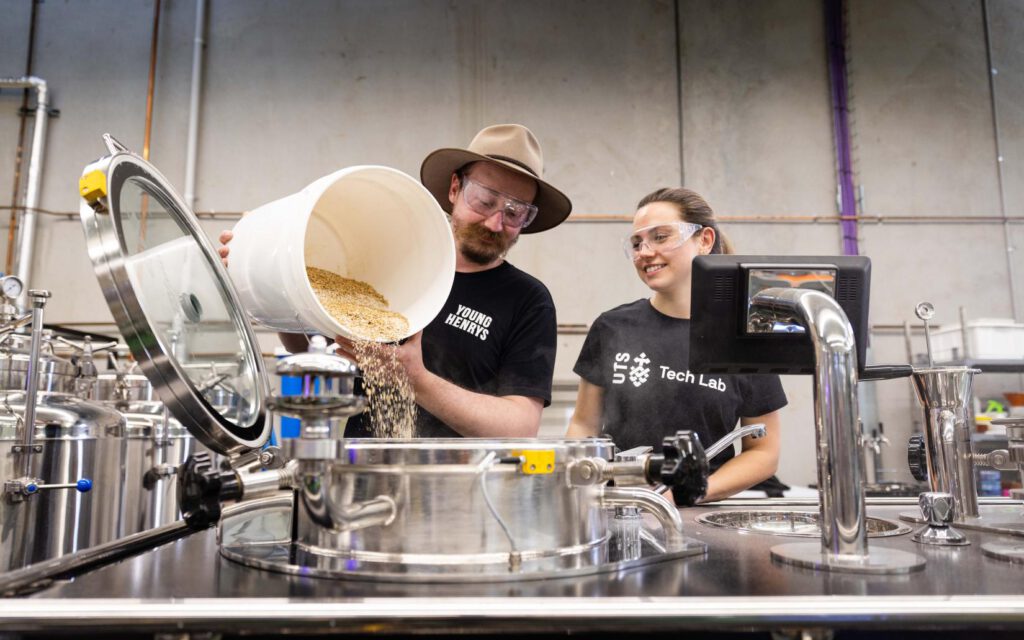More famous for its 3310 mobile phone, Nokia is now exploring the use of the metaverse for industrial purposes. From beer breweries to aircraft technicians in remote areas, the company is looking for ways to utilize the metaverse to support workers in distant locations.
The Finnish multinational telecommunications firm, known for delivering the internet with its technology and equipment, has set up two labs to examine the metaverse and the technologies that support it.
In collaboration with the University of Technology Sydney, Nokia has been working on a 5G-connected microbrewery using metaverse technology and augmented reality (AR).
Researchers from the brewery tech lab in Sydney have been working with their counterparts at Dortmund University in Germany to perfect beer brewing in a digital twin.

Speaking of the development, Robert Joyce, CTO of Nokia Oceania said they can now simulate the brewing process in the digital world. The technology enables them to experiment with changes in temperature, timing, volume, and recipes to produce the best beer.
“They actually do joint experiments where they brew beer,” said Joyce. “They change the process, the temperature, the timings, the volumes, the recipes […] and they feed back all of that brewing process into the digital twin.”
“Then they can actually simulate brewing in the digital twin so they can perfect the beer in the digital space.”
Similarly, Nokia has used the metaverse to help Cessna aircraft technicians in South Australia. The company worked with a virtual Cessna aircraft and used a 5G-connected Microsoft HoloLens to provide audio instructions to technicians via augmented reality.
The industrial #metaverse promises to fundamentally change the way we work, whilst driving productivity, boosting safety, and enabling new levels of flexibility.
— Nokia (@nokia) January 13, 2023
Find out more ahead of Davos in this blog from Nokia’s Nishant Batra. ▶️ https://t.co/BiDWssGfm0 @wef #WEF23 pic.twitter.com/d6Jfg5mk2G
Industrial Metaverse Will Grow Before Consumer Metaverse
With metaverse utility growing at an impressive rate, is it time to rush out and buy a headset? Not according to Nokia’s global chief strategy and technology officer, Nishant Batra.
Batra told the WEF at their general meeting the metaverse will disrupt industries before it has any lasting impact on the consumer market.
“Ports have begun using digital twins to track every container on their docks, no matter how deeply they are buried in stacks,” he said. “Aerospace companies are building engines and fuselages in the digital world to simulate exactly how an aircraft will fly – long before they tool its first mechanical part.”
Robert Joyce agrees with the statement, saying the industrial metaverse will see five times more revenue than the consumer or enterprise metaverse by next year. And that he doesn’t see the consumer metaverse taking off until 2030 due to the current clunky technology and discomfort of using headsets.
Nokia Led the Mobile Revolution, Is it Take Two?
The Nokia 3310 was the biggest-selling mobile phone back in the 1990s, and it made Nokia the leading telecommunications company in the world.
The Finnish telecommunications giant has taken a backseat in the smartphone era, but with its exploration in the metaverse, it is breaking new ground. Maybe its new technology will become another staple in everybody’s household.
Author

Web3 ethical auditor with a drive to evaluate and promote responsible practices in the decentralized sphere.




